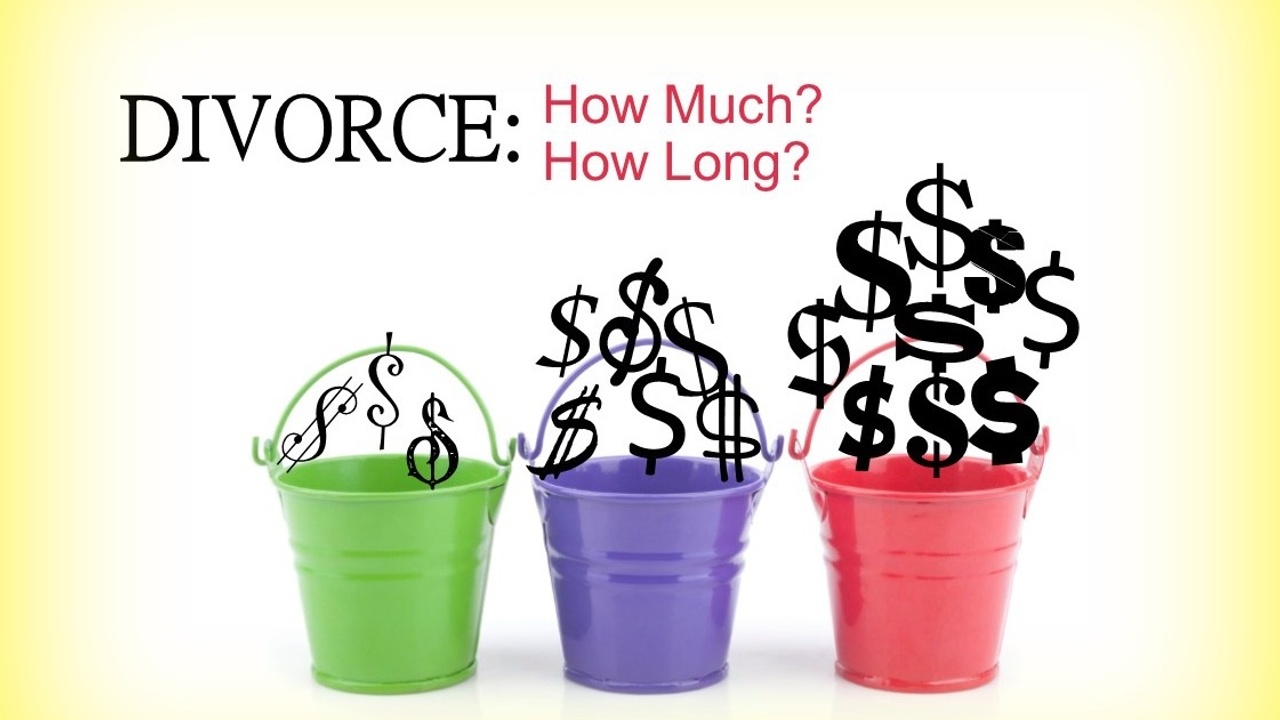Divorce: How Much and How Long? -part two-
Oct 20, 2022
In Part 1 of this blog we acknowledged the uniqueness of each case and the fact that there is no formula or exact calculation to predict the total fees or length of the divorce process. We also reviewed two rules of thumb that directly relate to my observations on typical timelines and fee tiers (or buckets).
When I meet with a prospective client at my law practice, I tell them they will fall into one of three buckets with respect to their fees with my firm.
The first bucket is under $5,000. These folks get along well enough to work out the issues on their own, or have very simple issues. They may need a document review (if they’ve put together their own documents) or they may need me to draft their documents. Either way, they are in and out of my door within 30-60 days
The second bucket is $5,000-$15,000. These folks may have some complex issues or disagree as to how to resolve some major issue (i.e., spousal maintenance). With the help of some sort of process (like mediation), they’re able to move through the complexity or disagreement to resolution, short of judicial intervention. The extra costs are for increased attorney participation and the involvement of professionals (mediator, accountant, etc.). Their cases take longer to resolve – usually 90 to 180 days.
The third bucket is $15,000+. These folks have either contentious and/or or complex cases. They defy easy resolution, and have heavy involvement from attorneys and outside professionals. These cases may need judicial intervention. These cases often take 180-360 days to resolve (or more).
No matter which bucket you may find yourself in, you likely wish the process was less complicated, less expensive, and already behind you. Although there are parts of the process that are out of your control, you do have the power to control your actions, your reactions, and your attitude. You may be able to make a positive change in how the process plays out by letting go of the things you do not have control of (actions, reactions, and attitude of your spouse) and instead focusing your energy on what you can do. This can affect the amount of contention and unnecessary complications – and therefore the length and time – of the proceeding.
Even if you see no change in the process, you will still find positive change in your person. And positive personal change is always a wise investment.
Suzanne E. Grandchamp
UNTANGLE, UNPACK, & LIVE WISELY:
Focus on a specific situation that happened prior to, during, or after the divorce.
- What was/is your spouse’s action or reaction that contributed to the situation?
- How did you react? What did you do or say in response?
- Knowing that you have no power to change the words or actions your spouse chooses, consider instead only your part of the situation.
- What did you do that makes you proud of how you conducted yourself in this difficult situation? What would you do differently?

